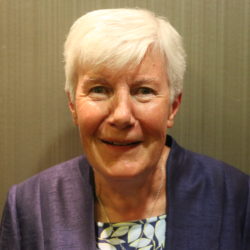On 26th June, 1986 ten young men aged between 16 and 18 were taken from Mamelodi, an African township, West of Pretoria, on the pretext that they were going to travel to Lusaka for training as ‘Freedom Fighters’. Their parents were unaware of their abduction or where they had been taken. Their journey took the schoolboys to the Botswana border where they were drugged. Their minibus/taxi was then set alight and their charred bodies later buried in pauper graves in Winterveldt. The newspapers of the day reported that ten terrorists planning to destabilise the then peaceful, law-abiding South Africa had been apprehended by the police.

Meanwhile, in Mamelodi ten families were searching for their children. It was only in 1994 when the Truth and Reconciliation Commission (TRC) was formed that details of their fate began to emerge. However, no one knew where the young men were buried. A long search began and with the formation of the Pretoria Reconciliation Forum, an ecumenical organisation, the Catholic Church became involved. Many meetings were held, many letters written to numerous government bodies and others including undertakers who might be able to give information. All our efforts seemed futile and the temptation was to give up. But the mothers did not give up and eventually it was established that the graves were in Winterveldt. But where?
Several spots were identified but proved incorrect. Then in 2005 the bodies were found. The next step was to identify them. The Argentine Government gave invaluable assistance from their own experience of searching for 30,000 young people who disappeared between 1976 and 1983.
On Friday, 26th September, 2008 we gathered at Freedom Park in Pretoria for the ceremony of handing over the remains of the ten young men to their families.
It was an interesting ceremony combining traditional rituals with Christian prayers, The traditional ritual was led by a woman and involved beating of drums, very energetic dancing and movements, loud calling on the ancestors: Chris Hani, Joe Slovo, and other well-known “martyrs” of the struggle for freedom. to receive the souls of the departed to their final resting place. Water was sprinkled and a fire burnt to take away the evil spirits from the dead.
Then it was the turn of the politicians who used the occasion to promote their own party views. The Communist party representative gave us a lecture on Marxism/Leninism and the classless society for which they were striving. Mercifully those present let him know that he had overstayed his welcome so he had to stop.
After four hours the families of the dead were given an opportunity to speak. The mood changed from the triumphalism of politicians to the sombre reality of how these people had suffered and how they had never stopped struggling to find their sons so that they could give them a dignified funeral and know where they were buried.

Mrs Maria Ntuli, the leader of the Mamelodi mothers has suffered a stroke, has lost two of her daughters to AIDS and now suffers from diabetes, never gave up the search for her son, Jeremiah. She thanked everyone who had helped them and stayed with them in their struggle. Others echoed her words and hoped that the more than 500 other missing people would be found. Brothers, fathers, aunts and uncles spoke very briefly, most obviously deeply moved by the occasion. The twin brother of Rooibaard Geldenhuys told us how he missed his brother and how his mother cried every day and eventually died of a broken heart.
More prayers followed and then at 14.30 the families claimed the coffins containing the remains of their sons. It was a long tiring day but not nearly as long or as tiring as the twenty-two years these families have waited for the return of their sons.
The burial took place in Mamelodi on Saturday, 11th October, 2008. Another chapter in the story of apartheid brutality will have closed and the on-going need for reconciliation emphasised.
Immaculata Devine rsm
South African Province


